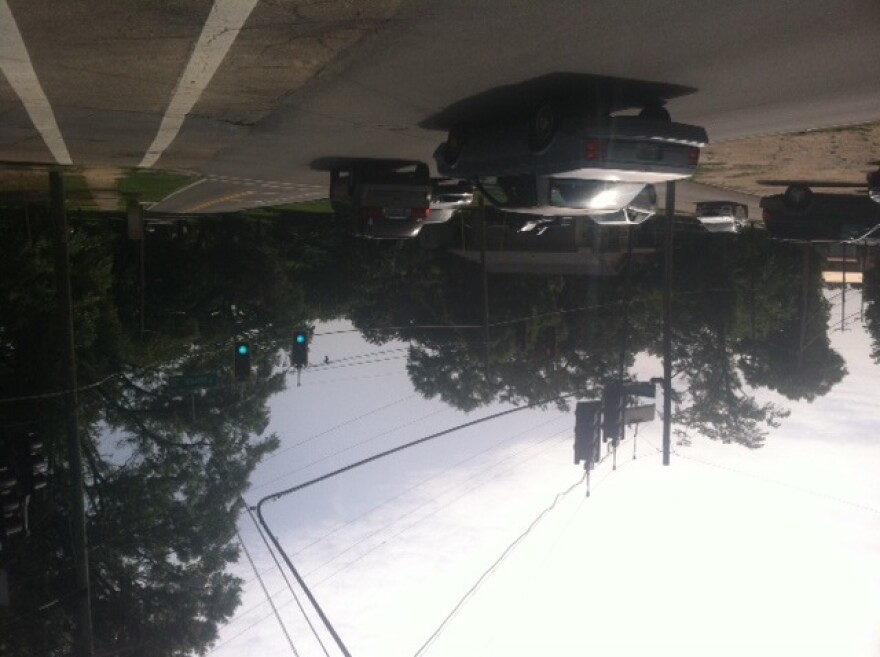The murder rate in Leon County is so far less than half of what is was last year--but it’s not reflective of how residents are feeling. Several double, and triple shootings have rocked Tallahassee—leading law enforcement agencies and government officials to try to crack down. But some say that’s only treating the symptom of the problem.
It’s early morning in mid-June, and a man has just been found dead: shot to death, in his apartment in Frenchtown. The police have come and gone, and the neighborhood is quiet. Down the street, a group of people sit on the sagging porch of an old house, its paint peeling. Empty, overgrown lots are mixed between old stores still standing—resistant to the urban decay. As I walk the street, I spot an older man in his 60’s.
“If you just hang around here a little while, you see a lot of jokers just standing around, walking back and forth" he said. "We talked, and I told him, ‘You need to save your life man, get out of this neighborhood, and get a job."
As we speak, his wife walks up. She stresses not to use their names. They're business owners and used to live in the neighborhood. But they moved out long ago.
“That way you’re not pointing any one out," she said. "But we’re speaking for a whole lot of them even if they don’t say anything."
The couple’s business, has been spray-painted twice with gang insignia. And as we speak a tall, gaunt man with a lurching step, walks past. We stop:
“That guy right there—he runs dope," said the husband, referring to a man in a green shirt. "He lives here. His parents used to own that corner there—that building—all that. His mom was a school teacher. But him? He’s in that game, and stays selling that stuff.”
Frenchtown is a former center of black commerce that, post-Civil Rights movement, has been worn down with decades of de-investment, drugs, crime and poverty. This Frenchtown shooting happened less than two weeks after three others rocked Tallahassee during the summer.

“What we do know for certain is that we have a situation that requires some extraordinary actions by the city government," said Tallahassee Mayor Andrew Gillum back in June.
Gillum, along with local pastors joined police officers to launch “Operation Safe Neighborhoods”-- a project that encouraged the Tallahassee law enforcement to more visibly police the neighborhoods of Frenchtown, the Southside and Wilson Green, where three people were shot in May. But weeks after the project began, another man died in a shooting on a front lawn in Wilson Green—despite the increased police presence. And it’s frustrating to City Commissioner Curtis Richardson—who had just joined a neighborhood clean-up with the residents of Wilson Green:
“Our neighborhoods have got to be involved. We have to show the same kind of outrage when we perpetrate crimes against each other, as what happens when a rogue cop goes too far," Richardson said. "We have to show that same kind of outrage and be involved in making sure the perpetrators are brought to justice."
“The DNA is exhausted from waiting. The DNA is tired as hell of living in America, and not having nothing," said Leon County Commissioner Bill Proctor, a staple of Southside politics. He’s not alone in that assessment. Stanley Sims created Shepherds Hand Outreach Center. He counsels people in prison. And ministers in neighborhoods. Sims says the cycle of economic segregation, educational disparities, worse health outcomes are not solved through sporadic community forums, and occasional walk throughs.
“It’s a crying shame when you’re working a full time job and you can’t live decently. So what is it when you’re working two?" Sims said.
The damage caused by violent crime spreads across the city—not the neighborhood where it occurred. Tallahassee has landed on Forbes magazine’s list of most violent cities in America.
“It affects Florida State's enrollment FAMU—people don’t want to send their children here. It affects the professionals who would move to this community otherwise, but for the violent reputation as the state’s number one most violent city," Proctor said.
The Tallahassee Police Department has worked six homicides this year. And the rate of shootings and other violent crime has fluctuated recently, painting a far more complicated picture that local law enforcement and city government officers are struggling to understand.








